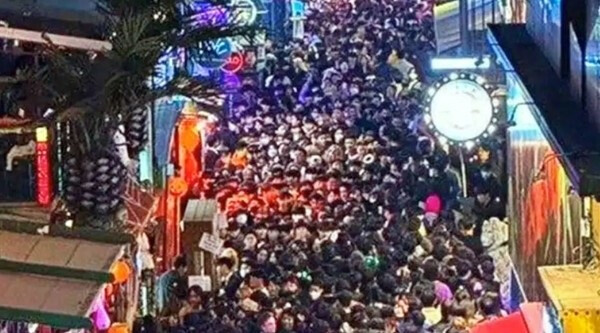
SEOUL, South Korea – More than two years have passed since the horrific crowd crush in Itaewon on October 29, 2022, claimed 159 lives, leaving an indelible scar on the South Korean psyche. Yet, as time marches on, the clamor for comprehensive truth and accountability continues to resonate, fueled by the persistent grief of victims' families and a pervasive sense that justice remains elusive. The critical question on the minds of many is: When will South Korea's judiciary, prosecution, police, and National Assembly fully commit to uncovering the truth and holding all responsible parties to account?
A Tenuous Pursuit of Truth
In the immediate aftermath of the tragedy, public outrage propelled swift, albeit largely criticized, action. A parliamentary national investigation was launched, and a special police investigation headquarters (Special Investigation Headquarters, or SIH) was established. However, the outcomes of these initial probes fell short of public expectations. The SIH faced accusations of "tail-cutting," largely sparing high-ranking officials, including the Minister of Interior and Safety and the Commissioner General of the National Police Agency, from charges or indictment. These decisions drew sharp criticism, with many arguing that the focus remained on lower-level personnel, overlooking systemic failures and a broader lack of preparedness.
Judicial Delays and Limited Scope
The judicial process has similarly been met with frustration. Legal proceedings have predominantly targeted on-site operational managers, and even these cases have progressed at a glacial pace, with initial rulings taking a considerable time to materialize. Critics contend that the Itaewon tragedy was not merely a result of on-site mismanagement but rather a manifestation of systemic negligence, a pervasive safety apathy, and a comprehensive failure in disaster preparedness. Judgments that solely dwell on the "duty of care of a good manager" without addressing these deeper structural issues are perceived by many as an abdication of the judiciary's responsibility in uncovering the full truth. The protracted nature of appeals to higher courts, including the Supreme Court, further prolongs the anguish of victims and their families.
Prosecution and Police Under Scrutiny
The role of the prosecution has also been subject to intense scrutiny. When the police investigation was deemed insufficient, the prosecution was expected to conduct further inquiries to unearth the hidden truths. However, allegations of "protecting their own" and susceptibility to "political pressure" have marred the prosecution's perceived commitment to an exhaustive investigation. Doubts persist regarding whether the prosecution has exerted its utmost effort to resolve all suspicions surrounding the Itaewon tragedy, and whether it possesses the will to do so moving forward.
Similarly, the police, despite admitting to shortcomings in their initial response and investigations, have faced accusations of an inadequate probe. A Seoul court, in a significant development, acquitted the former Seoul police chief, Kim Kwang-ho, of negligence in October 2024, citing insufficient evidence from the prosecution. This acquittal, protested vehemently by victims' families, has only deepened the sense of injustice and fueled calls for a more thorough and independent investigation into the culpability of senior officials. While some lower-ranked police officials have been convicted for failing to prevent the crush or for attempting to cover up evidence, the absence of accountability at the highest echelons continues to be a point of contention.
The National Assembly's Unfulfilled Promise
The National Assembly, despite conducting a national investigation that identified some problems, has been criticized for minimal tangible progress in holding responsible parties accountable or enacting substantial preventative measures. Accusations abound that political infighting has overshadowed the fundamental essence of the tragedy, preventing the legislative body from fulfilling its role as a guardian of public safety. For the Itaewon tragedy to serve as a catalyst for fundamental improvements in South Korea's safety systems, rather than simply fading into history, sustained parliamentary attention and effort are paramount.
The Enduring Call for Justice and Prevention
While acknowledging the inherent complexities of assigning blame in a disaster of this scale, it remains unequivocally clear that the nation's fundamental purpose and the efficacy of its systems were put to the test when innocent lives were lost. The pursuit of truth is not merely a courtesy to the victims but an indispensable safeguard against the recurrence of such tragedies.
The South Korean judiciary, prosecution, police, and National Assembly can no longer afford to neglect their profound responsibility in unearthing the complete truth behind the Itaewon tragedy. Though time continues to pass, the anguish of the victims and the tears of their families endure. Their sole desire is a "safe South Korea." It is imperative that all relevant institutions, from their respective positions, now move forward with unwavering dedication to truth and justice. To do otherwise would condemn the Itaewon tragedy to be remembered as another "truth ignored" in South Korean history, ultimately fostering an even greater societal complacency towards safety. Further silence risks sowing the seeds of yet another preventable catastrophe.
[Copyright (c) Global Economic Times. All Rights Reserved.]



























